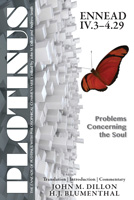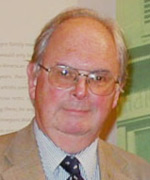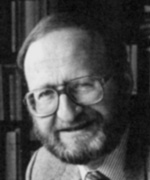
 |
PLOTINUS Ennead IV.3–4.29:
Problems Concerning the Soul
Translation, with an Introduction, and Commentary
THE ENNEADS OF PLOTINUS
—WITH PHILOSOPHICAL COMMENTARIES
Series Edited by
John M. Dillon and Andrew Smith
March 2015
978–1–930972–89–6
452 pages • 5 x 7.5 • Paperback
$47.00
|
|

John Dillon
is Emeritus Fellow and former Regius Professor of Greek at Trinity College Dublin as well as founder and Director Emeritus of the Centre for the Study of the Platonic Tradition in Trinity College. He is the author of many books on the history of the Platonic tradition, including The Middle Platonists; Alcinous, The Handbook of Platonism; Iamblichus, De Anima; The Heirs of Plato: A Study of the Old Academy, 347–274 BC; and editor of three collections of essays on Platonism and Christianity and on the platonic heritage. In 2004 he was awarded the Academy Gold Medal in the Humanities by the Royal Irish Academy, and in 2010 he was elected a Corresponding Member of the Academy of Athens. |
|

Henry J. Blumenthal
was a leading scholar in the area of Neoplatonism. From 1965 until his untimely death in 1998 he worked at the department of Classics and Archaeology, University of Liverpool, starting out as lecturer in Greek, gaining full professorship, and eventually becoming department chair. He is the author of
Plotinusí Psychology: His Doctrines of the Embodied Soul, and Aristotle and Neo≠platonism in Late Antiquity. Many of his articles, spanning over a quarter of a century, were gathered and published in the collection Soul and Intellect. |
|
|
|
For Plotinus, the nature and status of the human soul is one of the central problems of philosophy. Ennead IV.3–4.29 constitutes his most penetrating enquiry into this topic, addressing the issues of the relation of the individual soul to the World Soul, the descent of the soul into body, its relations with that body, problems of personal identity and the nature of memory, sense perception, and the true seat of the emotions —many of which still have a resonance today.
The treatise is an excellent example of Plotinus’ distinctive method of inquiry: not dogmatic (though he is no skeptic), but worrying away at questions until he has uncovered their complexities to the best of his ability. Such a work requires detailed commentary, such as is provided here, to tease out fully the fascinating convolutions of his thought.
Plotinus was a Platonist, committed to expounding the doctrines put forward by Plato some seven centuries earlier. He was born and educated in Egypt, where he studied the teachings of Plato under the guidance of Ammonius Saccas. He came to Rome in 244 CE and built up a circle of followers devoted to studying Plato through Plato's own works and those of philosophers, both Platonist and non-Platonist, of the intervening centuries. From his fiftieth year Plotinus himself wrote down, in Greek, the findings of the seminars, and these writings were later edited by one of his pupils, Porphyry, and published in six groups of nine treatises entitled the Enneads (from the Greek word for nine – ennea).
|
|
 |
The soul is the key doctrine in Plotinus, both as a topic and as justification for his methodology. For humans to turn to address the soul is for them to obey the Socratic injunction to ‘know thyself’. It is the point of entry into a study that will open to all of reality, insofar as it can be known. As bequeathed from his predecessors Plato and Aristotle, the soul has two functions, to be the principle of life and unity for a body, but also to be a pivot of vision or realization that may turn either up or down.
(Read the entire review here)
|
—Patrick Madigan
Heythrop College |
|
| “Taking up the initial version of a work begun by one of the best connoisseurs of Plotinus in the English language, Henry Blumenthal, who died tragically in 1998, John Dillon, whose competence concerning the Platonic tradition is acknowledged by all, proposes this annotated translation of Ennead IV.3–IV.29. [It] contains, in elegant English illuminated by numerous notes, a mine of information on the productive and providential functions of the world soul according to Plotinus, and on the peregrinations and functions of the human soul.” |
—Luc Brisson
Director of Research
Jean Pépin Centre, CNRS (France) |
|
“This is a volume to treasure, by two of the most authoritative contemporary voices on Neoplatonism. The translation succeeds in being both fluent and accurate while the commentary is exceptionally helpful in guiding the reader through the intricacies and obscurities of Plotinus’ philosophy of the Soul.”
|
—Suzanne Stern-Gillet
Professor of Ancient Philosophy
University of Bolton |
|
“We could have no better guide to the thought of this complex but crucially important treatise in Plotinus’ œuvre than John Dillon, who is able to build on the legacy of the late Henry Blumenthal.”
|
—David T. Runia
Professorial Fellow
School of Historical
and Philosophical Studies
University of Melbourne |
|
| “Dillon and Blumenthal offer us an authoritative new translation of one of Plotinus’ most intricate and insightful writings on psychology. Their commentary guides us effectively through the maze of the author’s complex argumentation, which concerns the nature of the soul, its relation to the body, its inner life and its passions.” |
—Paul Kalligas
Assistant Professor of Ancient Philosophy
National and Kapodistrian University of Athens |
|
“Dillon and Blumenthal have produced a much needed, up-to-date translation of Plotinus’ writings on soul, and an incisive commentary that portrays the aporetic approach to Plotinus’ investigation as well as the ingenuity of his reasoning. For students and scholars alike, this commentary will likely become an essential accompaniment to Blumenthal’s Plotinus’ Psychology: His Doctrines of the Embodied Soul.” |
—Danny Muñoz-Hutchinson
Assistant Professor of Philosophy
St. Olaf College |
|
|
|
|
|
|

